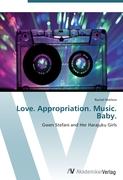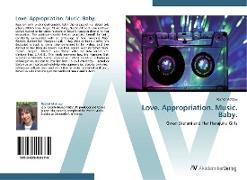- Start
- Love. Appropriation. Music. Baby
Love. Appropriation. Music. Baby
Angebote / Angebote:
Revision with unchanged content. With the release of her debut solo album, 2004's Love. Angel. Music. Baby., No-Doubt front-woman Gwen Stefani turned to the street fashions of Tokyo's Harajuku district for her inspiration. The platinum-blonde Stefani promoted herself by being constantly surrounded with an entourage of four voiceless Asian women, dubbed her "Harajuku Girls". They were on her CD cover, she dedicated a track to them, they performed in her videos, and they danced on her Harajuku Lovers live tour. Stefani even re-named them, "Love", "Angel", "Music", and "Baby" after her new record and clothing line, L.A.M.B.. This study examines how the Harajuku Girls function as Stefani's human accessories - silent, sexed-up, submissive, school-girl muses sent to save her from her dull whiteness. I introduce Stefani as an intertextual celebrity who appropriates, absorbs and cross-references cultural texts and ethnicities in order to market and brand herself as a distinct entity in the worlds of music and fashion.
Folgt in ca. 10 Arbeitstagen

